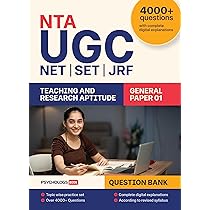UGC Paper 1 Exams The UGC Paper 1 exam is a critical component of the National Eligibility Test (NET) conducted by the University Grants Commission (UGC) in India. This exam is designed to assess the teaching and research aptitude of candidates aspiring to become lecturers or researchers in Indian universities. Understanding the structure and preparation strategies for this exam is essential for success.
Exam Structure
UGC Paper 1 consists of 50 multiple-choice questions, each carrying two marks, for a total of 100 marks. The exam covers a range of topics, including teaching aptitude, research methodology, communication, reasoning ability, and general awareness. The objective is to evaluate the candidate’s overall competence in teaching and research, not just their subject knowledge.
The syllabus is broad, encompassing various aspects of education, including educational psychology, philosophy of education, and environmental studies. Candidates must familiarize themselves with these areas to perform well. The exam is typically conducted in a paper-pencil format, though recent trends have seen a shift towards online assessments.
Preparation Strategies
To excel in UGC Paper 1, effective preparation is vital. Candidates should start by thoroughly reviewing the syllabus and understanding the weightage of each topic. Creating a study plan that allocates sufficient time to each subject area is crucial. Utilizing standard textbooks, online resources, and previous years’ question papers can enhance understanding and retention.
Regular practice is essential. Candidates should attempt mock tests to familiarize themselves with the exam format and improve their time management skills. Analyzing performance in these tests can help identify weak areas that require additional focus. Group study sessions can also be beneficial, allowing candidates to discuss and clarify concepts.
Key Areas to Focus On
1. Teaching Aptitude: Understanding the principles of teaching, learning styles, and assessment techniques is crucial. Candidates should explore various teaching methodologies and their applications.
2. Research Methodology: Familiarity with different research designs, data analysis techniques, and ethical considerations in research will be beneficial.
3. Communication Skills: Effective communication is vital in academia. Candidates should practice articulating their thoughts clearly and concisely.
4. General Awareness: Staying updated with current affairs, particularly in education and policy changes, is important. Regular reading of newspapers and educational journals can aid in this regard.
Conclusion
Success in the UGC Paper 1 exam requires a well-rounded approach to preparation. By understanding the exam structure, focusing on key areas, and adopting effective study strategies, candidates can significantly enhance their chances of qualifying. Consistency and dedication will ultimately lead to success in this important academic milestone.

































